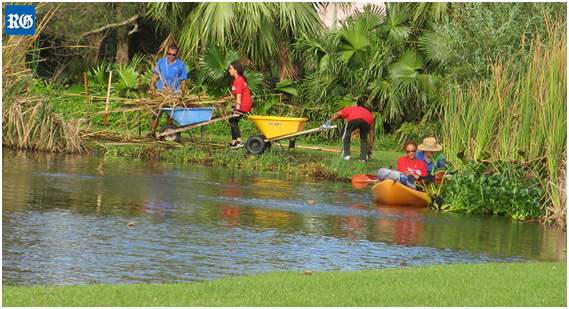Recent News
Aquarium shark gets his freedomTuesday, March 20, 2012
Osbourne the shark went from the North Rock Exhibit to North Rock itself as he was released into the wild.
BAMZ shark goes wild
Monday, March 19, 2012
MONDAY, MARCH 19: The Department of Conservation Service today announced that it has released its seven-year-old male Galapagos shark back into the wild for health reasons.
Unlocking the Secrets of Sea Turtle Migration
Wednesday, February 29, 2012
Newswise — Sea turtles have long and complex lives; they can live into their 70s or 80s and they famously return to their birthplace to nest. But new research suggests this isn’t the only big migration in a sea turtle’s life.
Fishing proposal is at odds with Blue Halo project, charges OBA
Monday, February 27, 2012
Proposed licencing for foreign fishing vessels stands in complete conflict with plans to preserve the ocean around Bermuda, according to Shadow Environment Minister Michael Fahy.
About
GovernanceAbout Us
Newsletter
Latest News
Gift & Bookstore
Contact
General Inquiries
info@bzs.bm
Latest News
All the latest updates and news from the Bermuda Aquarium, Museum, and Zoo, one of Bermuda's leading visitor attractions!
Jonathan Bell
Published Jan 16, 2018 at 8:00 am (Updated Jan 16, 2018 at 6:41 am)

HSBC volunteers help a Bermuda Zoological society team clean up
Cloverdale Pond in Smith's (Photograph supplied)
Two ponds have been cleaned up courtesy of an island conservation programme.
Cloverdale Pond in Smith’s and Southampton’s Evan’s Pond, a refuge for endangered species, were improved through the Bermuda Zoological Society’s wetlands remediation programme.
The scheme, which became the HSBC global water programme for Bermuda in 2014, was designed to remove toxic petroleum compounds from ponds.
The build-up of the poisonous hydrocarbons is a threat to the island’s two endemic killifish species, as well as native diamondback terrapins, which are a protected species.
The compounds, which come from oil, water runoff and vehicle exhausts, can be broken down by bacteria when the pond sediments are aerated.
The two-year grant from HSBC allowed the proposal to be tested in the field.
Volunteers also took part, with help from the Department of Environment and Natural Resources.
The BZS said Cloverdale was chosen first because of its small size, its “known severe effects on wildlife” and the absence of protected species in the water.
Evan’s Pond was selected as the second test site because of its small population of killifish.
The ponds were divided into sections and aerated for six to eight hours a day with solar powered compressors.
Hydrocarbon levels saw a major reduction over the course of a year.
The next site for remediation is the South Pond at the Mid Ocean golf course, where the hatching of diamondback terrapins has been hampered by pollution.


